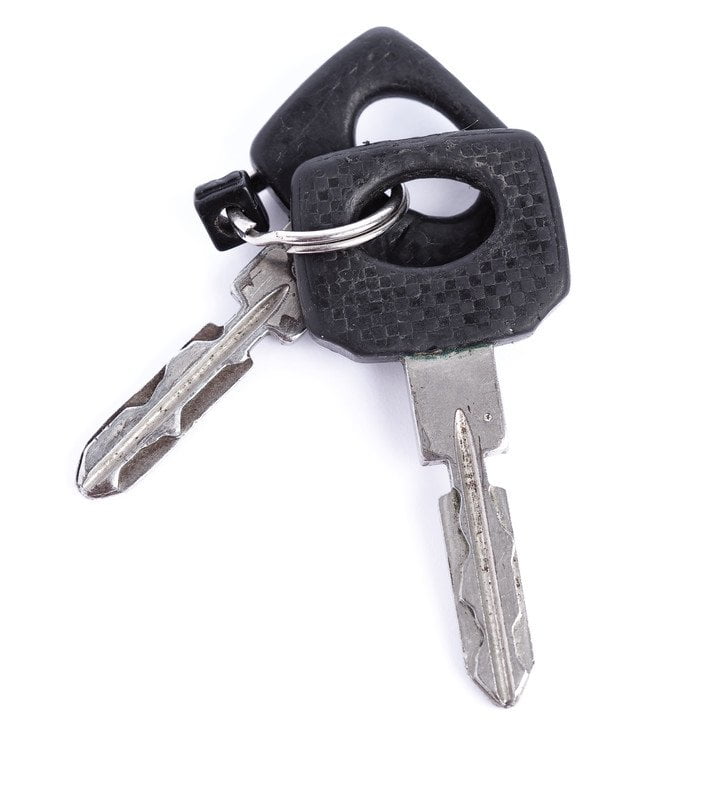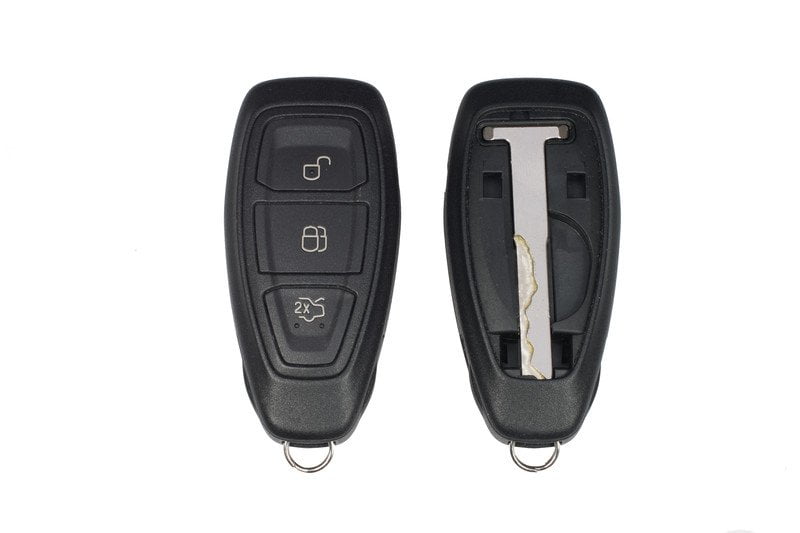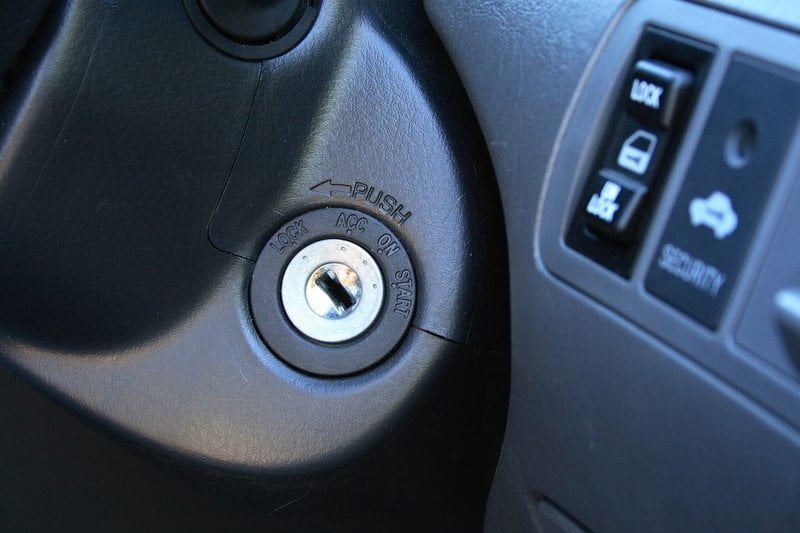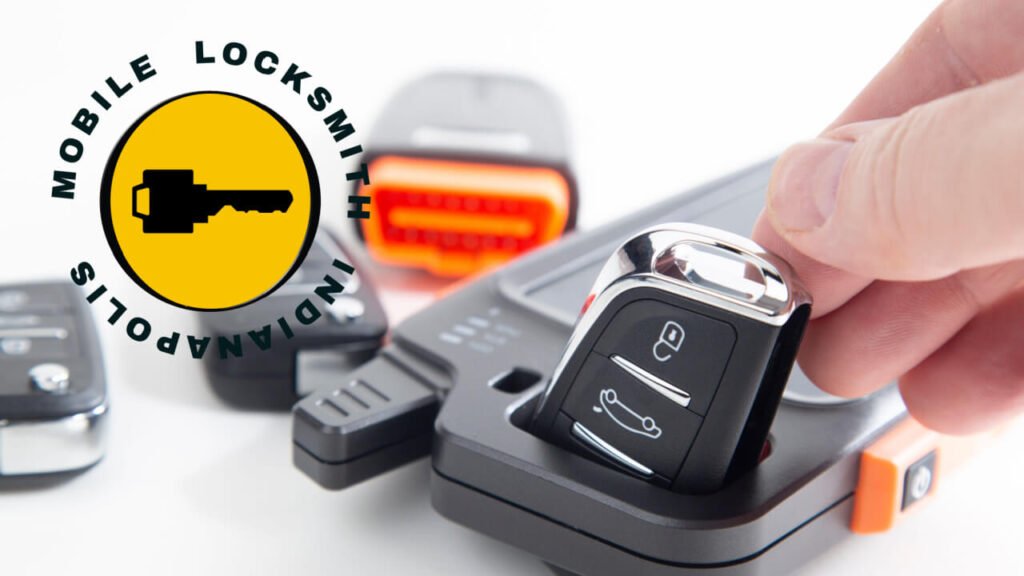Experiencing problems with your car keys can be frustrating and inconvenient. Understanding the common causes and solutions can help you get back on the road quickly. Here are some essential facts to keep in mind:
- Battery Issues: Many modern car keys, especially key fobs, rely on batteries. A dead or weak battery can lead to unresponsiveness.
- Wear and Tear: Physical keys can get worn out over time. This can lead to difficulty in turning the ignition or unlocking the doors.
- Signal Interference: Key fobs can be affected by electronic interference from other devices or environmental factors.
- Damage: Keys can get damaged by falls, exposure to water, or even extreme temperatures.
- Security Features: Some car keys have built-in security features that can occasionally malfunction, leading to issues with starting the car.
- Programming Problems: Key fobs and transponder keys need to be correctly programmed to work with your car’s system. Misprogramming can prevent them from functioning properly.
| Issue | Symptom | Solution |
|---|---|---|
| Battery Issues | Reduced range, inconsistent performance | Replace the battery |
| Wear and Tear | Difficulty in turning the ignition, unlocking doors | Replace the physical key |
| Signal Interference | Unresponsive key fob | Move away from interference sources |
| Damage | Unresponsive or partially working keys | Repair or replace the key |
| Security Features | Car not starting | Consult the car manual or a professional |
| Programming Problems | Key fob not working, car not responding | Reprogram or replace the key fob |
30% of car key issues are related to key fob programming errors
20% of car key issues are due to battery problems
15% of car key malfunctions are caused by electronic interference
10% of car keys fail due to physical damage
5% of car key failures are due to worn-out key blades
Dead Battery in Key Fob: Signs and Solutions
The signs of a dead battery in your key fob are often quite clear. You might notice a reduced range, meaning you need to be closer to your car for the fob to work effectively. Inconsistent performance, where the key fob works sometimes but not at others, can also be a red flag. Additionally, if the buttons on your fob do not light up when pressed, or if your car fails to respond to the fob’s commands, chances are high that the battery is drained.
Addressing this issue is generally straightforward. The first step is to check the battery’s condition. Most key fobs can be opened with ease, often requiring just a small screwdriver or even a coin to pop the back cover. Once open, you’ll see the battery, which you can then remove and inspect. The battery type will be indicated on its surface, allowing you to purchase an exact replacement.
After obtaining a new battery, place it into the fob, ensuring it’s properly aligned. Close the back cover and test the fob. If the issue was indeed a dead battery, your key fob should now be functioning correctly. In scenarios where replacing the battery doesn’t solve the problem, further troubleshooting might be needed, such as checking for potential damage or consulting a professional.
Worn Out Key Blade: How to Identify and Fix
One of the most common signs of a worn-out key blade is difficulties in turning the ignition or unlocking the doors. Over time, the metal teeth on the key can wear down from constant use, leading to a compromised fit in the keyhole or ignition cylinder. You might notice that the key requires extra effort to turn, or it might not turn at all.

To identify a worn key blade, compare it to a new or less-used spare key. If you observe any differences in the grooves or overall shape, it’s likely your key blade has seen better days. In some cases, you might even see visible signs of wear, such as dull or rounded edges.
Once you’ve identified a worn key blade, the next step is to address the issue. Here’s how:
- Replacement: The most straightforward solution is to replace the worn key blade. You can get a new key cut from the spare or original key code. It’s crucial to use a reputable locksmith or dealership to ensure the new key matches the specifications required.
- Rekeying: If the key wear has also compromised the ignition or door lock cylinder, rekeying might be necessary. A skilled locksmith can reconfigure the internal components of the locks to match a new key, providing a fresh start without replacing the entire lock system.
- Maintenance: To prevent future wear and tear, make a regular habit of cleaning your key and the keyhole. Remove any dirt or debris that could exacerbate wear on the key blade.
In summary, a worn key blade is more than just an inconvenience—it can signal deeper issues that, if left unaddressed, could lead to further complications. By identifying the wear early and taking appropriate action, you can maintain smooth and hassle-free access to your vehicle.
Interference from Other Devices: How to Overcome Signal Blockages
Sometimes, your car key might experience signal blockages due to interference from other devices. This can be particularly frustrating when you’re in a hurry. Interference often comes from devices that emit radio frequencies, such as cell phones, Wi-Fi routers, or even nearby electronic signage. These signals can clash with your car key’s frequency, preventing it from working correctly.

One simple solution is to move away from the sources of interference. Try moving your key fob closer to your car or holding it up to reduce interference. Sometimes, just changing your position or moving a few steps away from other electronic devices can make a big difference.
If the problem persists, examine your surroundings. Are there multiple electronic devices nearby? If you are in a crowded area with numerous wireless signals, try to isolate your key fob by shielding it with your hand or placing it inside a signal-blocking pouch designed for key fobs. These pouches are inexpensive and can prevent unwanted interference.
Additionally, keep your key fob away from other electronic devices when not in use. Habits like storing your key fob next to your phone or other gadgets can lead to potential signal disruptions. Creating a designated spot for your key fob that’s isolated from other electronics can minimize interference.
If you’ve tried these measures and still face issues, the problem could lie within the key fob itself. Internal electronics might be malfunctioning or damaged. In such cases, consulting a professional for a diagnostic check would be a prudent step. They can determine if the issue is due to interference or if there’s a more deep-seated problem with the key fob’s internal components.
Damaged or Corroded Key: Common Causes and Remedies
Damage or corrosion can significantly impact the functionality of your car key. Over time, exposure to moisture, dirt, and general wear-and-tear can lead to internal and external damage. When a key becomes damaged, it might not fit properly in the lock or ignition, and in electronic keys, internal circuitry can malfunction.

Identifying Damage or Corrosion
There are several signs your key might be damaged or corroded. If your key doesn’t open any locks or start the car, but a spare key does, this is an immediate red flag. Visible wear, cracks, or rust on the key blade are also telltale signs. For key fobs, inspect for any cracks, damage to the casing, or buttons not working properly.
Remedies and Solutions
If you identify damage or corrosion, it’s crucial to address it promptly. For metal keys, cleaning the key with a soft brush and mild cleaning solution can sometimes remove minor rust or dirt. For electronic fobs or remotes, replacing the casing or buttons might resolve physical wear issues. However, if internal circuitry is damaged, you may need a complete replacement.
Keep a backup key in good condition as a preventive measure. Regular maintenance, such as cleaning and avoiding exposure to harsh environments, can extend the life of your keys. If you’re unsure about the condition of your key, professional guidance from a locksmith or dealership can provide a thorough assessment and recommend appropriate solutions.
Professional Help: When to Seek a Locksmith or Dealer
Recognizing the exact moment to seek professional assistance in the Indianapolis metro area can save you both time and stress. For instance, if your key fob has completely stopped working despite replacing the battery, it’s likely a sign of a deeper issue. In such cases, both local dealerships and Indianapolis locksmiths can offer the expertise needed. While dealerships may provide a more brand-specific solution, a locksmith in Indianapolis, such as Mobile Locksmith Indianapolis, can offer a broader range of services and often at a more competitive rate.

Complex issues, such as faulty transponder keys or immobilizer systems, typically call for professional intervention. Attempting to fix these advanced problems yourself could result in further damage. By contacting a reputable auto locksmith in Indianapolis or your local car dealership, you can ensure that the problem is diagnosed accurately and resolved efficiently.
If you encounter problems with aftermarket car keys, such as the key never working properly from the start or visibly differing from the original, this also necessitates professional help. Aftermarket keys need to be correctly programmed and paired with your vehicle, which usually requires sophisticated tools and knowledge.
Additionally, if your key blade is worn out or your key is physically damaged, an Indianapolis locksmith or dealer is equipped to provide a replacement or repair. Remember, keeping a backup key or two can save you from future inconvenience and unexpected costs.
Ultimately, whether you choose a local dealership or an auto locksmith in the Indianapolis metro area will depend on the specific issue and your personal preference. However, understanding when to reach out for professional help means you’re taking a proactive step towards ensuring that your car key concerns are handled effectively and efficiently.
Lost Programming: Steps to Reprogram Your Car Key
One common reason for a car key losing its programming is a dead battery in the key fob. Before assuming the key needs to be reprogrammed, replace the battery and test the key fob. If the issue persists, the key may indeed need reprogramming.

Here’s a step-by-step guide to help you through the reprogramming process:
- Refer to Your Owner’s Manual: Locate the section on key programming. Specific instructions can vary based on the make and model of your vehicle. Detailed steps provided by the manufacturer are always the best source.
- Enter Programming Mode: Usually, this involves turning your ignition key to the ‘on’ position without starting the engine, or in vehicles with push-start systems, pressing the start button without pressing the brake. Pay attention to the dashboard indicators for prompts.
- Press Key Fob Buttons: While in programming mode, press and hold the lock and unlock buttons on your key fob simultaneously for several seconds. Some vehicles require this step to program the remote functions of the key fob.
- Test the Key: Exit programming mode by turning the key to the ‘off’ position or pressing the start button again. Test the key fob functions to ensure it’s working correctly.
It’s important to note that not all vehicles allow you to reprogram the key yourself. In many cases, especially In the Indianapolis metro area, advanced key fobs or transponder keys often require professional equipment for proper programming. Don’t hesitate to reach out to a qualified locksmith or your local car dealer in Indianapolis to ensure your key is correctly programmed.
If you find yourself needing frequent reprogramming, consider whether an aftermarket key might be the cause. Aftermarket keys can sometimes exhibit compatibility issues, leading to inconsistencies in performance. If this is the case, investing in a manufacturer-approved key may resolve these issues long-term.
Frequently Asked Questions(FAQ)
What should I check if my car key isn’t unlocking the doors?
First, consider whether the key fob battery might be dead. A common sign of a drained battery is the car’s failure to respond when you press the button to unlock the doors. If you notice reduced range or inconsistent performance, it’s a good indication that it’s time to replace the battery. Most key fob batteries are inexpensive and can be found at local stores.
If replacing the battery doesn’t resolve the issue, check for internal damage to the key fob. This could include loose connections or worn-out buttons. You can inspect the fob by carefully opening it or, preferably, have it checked by a professional to avoid causing further damage.
Another possibility is interference from other electronic devices. Electronic gadgets such as mobile phones or even other key fobs can sometimes interfere with the signal. Try using your key fob away from other devices to see if that resolves the issue.
You should also inspect the car door locks. External physical damage, such as dents or debris stuck in the lock, can prevent the key from working. Sometimes, a good cleaning can restore their functionality. In severe cases, you might need a lock replacement.
If none of these solutions work, it might be a more complex electronic issue with the car’s keyless entry system itself. In this case, consulting a professional locksmith or visiting your car dealer can help diagnose and resolve the problem. They might need to reprogram the key or repair the car’s electronic system.
Is it possible to replace a car key myself?
Yes, it is indeed possible to replace a car key yourself, although it does come with its own set of challenges. If your car uses a traditional flat metal key, getting a replacement can be relatively straightforward. You can visit a local hardware store or a locksmith to have a new key cut. However, modern vehicles often come with more advanced key systems including transponders, key fobs, and smart keys, which require a bit more effort and technical know-how.
For key fobs and transponders, you can purchase a replacement key online or from an auto parts store. Once you have the new key, it will need to be programmed to pair with your vehicle. This can often be done using your car owner’s manual, which may contain step-by-step instructions. Alternatively, there are numerous online guides and videos that can walk you through the reprogramming process.
Here’s a brief overview of the steps involved:
- Acquire the correct replacement key or key fob. Ensure it’s compatible with your car’s make and model.
- Follow your car’s reprogramming procedure. This may include a sequence of actions such as turning the ignition on and off, pressing specific buttons on the key fob, or using a diagnostic tool.
- Test the new key to make sure it is properly paired and functioning with your vehicle.
While the DIY route can save you money, it might not always be the easiest or most effective option. Reprogramming a key yourself might work for some makes and models, but others may require specialized equipment that only professionals have. If you find the process too daunting, or if you’ve tried and failed, it may be time to seek assistance from a professional locksmith or your car dealership.
It’s also worth noting that using aftermarket keys can sometimes lead to compatibility issues. Aftermarket car keys should be appropriately programmed and paired to your vehicle to ensure they work correctly. Even then, if you’re not comfortable with the technical aspects or if the key involves complex programming, seeking professional help is advisable to avoid any potential complications.
How much does it cost to replace a car key?
The cost of replacing a car key can vary greatly depending on several factors. If you have a basic key without any electronic components, you might spend as little as $100 to $130. However, if your car key has a transponder chip, the cost can increase significantly, ranging between $175 and $350. High-tech keys, such as those used in luxury vehicles, can cost even more, often exceeding $500.
One of the cheapest options is purchasing a used key remote, which may save you some money upfront. However, keep in mind that the programming costs associated with used remotes might reduce those savings. On the other hand, a new remote ensures reliability but comes with higher costs.
Your best bet might be to compare prices from different sources, such as auto dealerships, locksmiths, and online retailers. Keep in mind that dealerships generally charge more, but they offer a higher degree of reliability and expertise. Locksmiths can also provide competitive rates and on-site services, often with quicker turnaround times. Additionally, online retailers can be a cost-effective option, especially if you’re comfortable with DIY programming.
It’s essential to factor in the cost of programming as well. Programming a new key typically ranges from $150 to $200, depending on the complexity of your vehicle’s system. In some cases, you may be able to program the key yourself using instructions provided by the manufacturer, which can be a way to save additional costs.
Ultimately, understanding the type of key you have and exploring various replacement options can help you make an informed decision that balances cost and convenience.
Can a locksmith help with a malfunctioning car key?
Absolutely. Locksmiths are skilled professionals who can address a wide range of issues with car keys. Whether you’re dealing with a key that won’t turn in the ignition, a malfunctioning remote, or a lost key, a locksmith can often provide a quicker and more affordable solution compared to a dealership.
If your key isn’t working because of a dead battery in the key fob or visible wear and tear, a locksmith can replace the battery or even cut a new key. They have the tools and expertise to handle modern key types, including transponder keys and keyless entry systems.
Moreover, many Indianapolis locksmiths offer mobile services, so they can come to your location and resolve issues on the spot. This is particularly useful if you find yourself stranded in the Indianapolis metro area due to a faulty key. Local locksmiths can also reprogram your car key if the programming has been lost or corrupted, saving you a trip to the dealership.
So, if you’re experiencing issues with your car key, reaching out to a professional locksmith can be a practical and cost-effective first step. Always ensure the locksmith you choose is reputable and experienced in handling car key problems for the best results.
